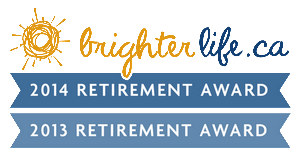When we as a Board, were asked for some names to speak at the SHARE Family Services Annual General Meeting, someone suggested Paul Kershaw and said that his presentation on Generation Squeeze would be interesting and challenging but would fit within our mandate and goals.
I was a bit sceptical as I was not sure what I as a Boomer could learn from the younger generation. I also thought that what the movement would pit one generation against another as we fight for limited resources. I was wrong, after the presentation, it was clear to me that it is our children that are the ones being squeezed and we can help them by changing our attitudes and by taking actions. I support the ideas raised by this movement and suggest that you take a look at their website here.
According to Paul Kershaw, Generation Squeeze is a generation that is squeezed between lower incomes and higher costs for housing, tuition, child care and saving for retirement. Here are some of his ideas as presented on his website.
High home prices squeeze generations under age 45 with crushing debt, which they must pay with wages that have fallen compared to a generation ago, and in jobs that rarely contribute pensions.
The national response? Governments spend just $12k on benefits and services per Canadian under 45, compared to nearly $45k for every retiree.
Since two earners barely bring home today what one breadwinner did in the 1970s, we’ve gone from 40 hour work weeks to closer to 80 hours. The result? Generations raising young kids are squeezed for time at home. They are squeezed for income because housing prices are nearly double, even though young people often live in condos, or trade yards for time-consuming commutes. And they are squeezed for services like child care, which are essential for parents to deal with rising costs, but are in short supply, and cost more than university.
Paul believes that his generation and ours (The boomers) CAN CHANGE THIS. While the deck may be stacked against us now, we can get “A Better Generational Deal” – one that gives all generations a chance, including Gen Squeeze. Join us to make this Better Deal a reality.
Here is one of his ideas on how to bring about this change:
Restoring better balance between generations begins with incremental change. We recommend shifting annual spending on each Canadian under 45 from around $12k to $13k, while maintaining spending for retirees around $45k. Who could object to this?
This small shift could create a $22 billion dollar budget to invest in young people. We know the policy changes required to Reduce the Squeeze in ways that make family time and services affordable while still leaving room to pay down debt and save for retirement.
But we don’t know all the ingredients for a better generational deal. You may have other priorities. Tell us.
Problem is, we’re unlikely to achieve any of our priorities for a better generational deal until Canadians across generations actively vocalize that the deal is stacked against younger Canadians today.
So donate your voice to call for a better generational deal. Here’s how to Get InvolvedNow.
You’ll learn it’s not your fault that incomes are lower, student loans larger, housing costs higher, and financial stability further out of reach. These problems reflect bad timing more than personal failure.
So change what you know to change how you feel. The Gen Squeeze campaign is replacing anxiety and even shame among younger Canadians with the confidence to call actively for a new generational deal.
